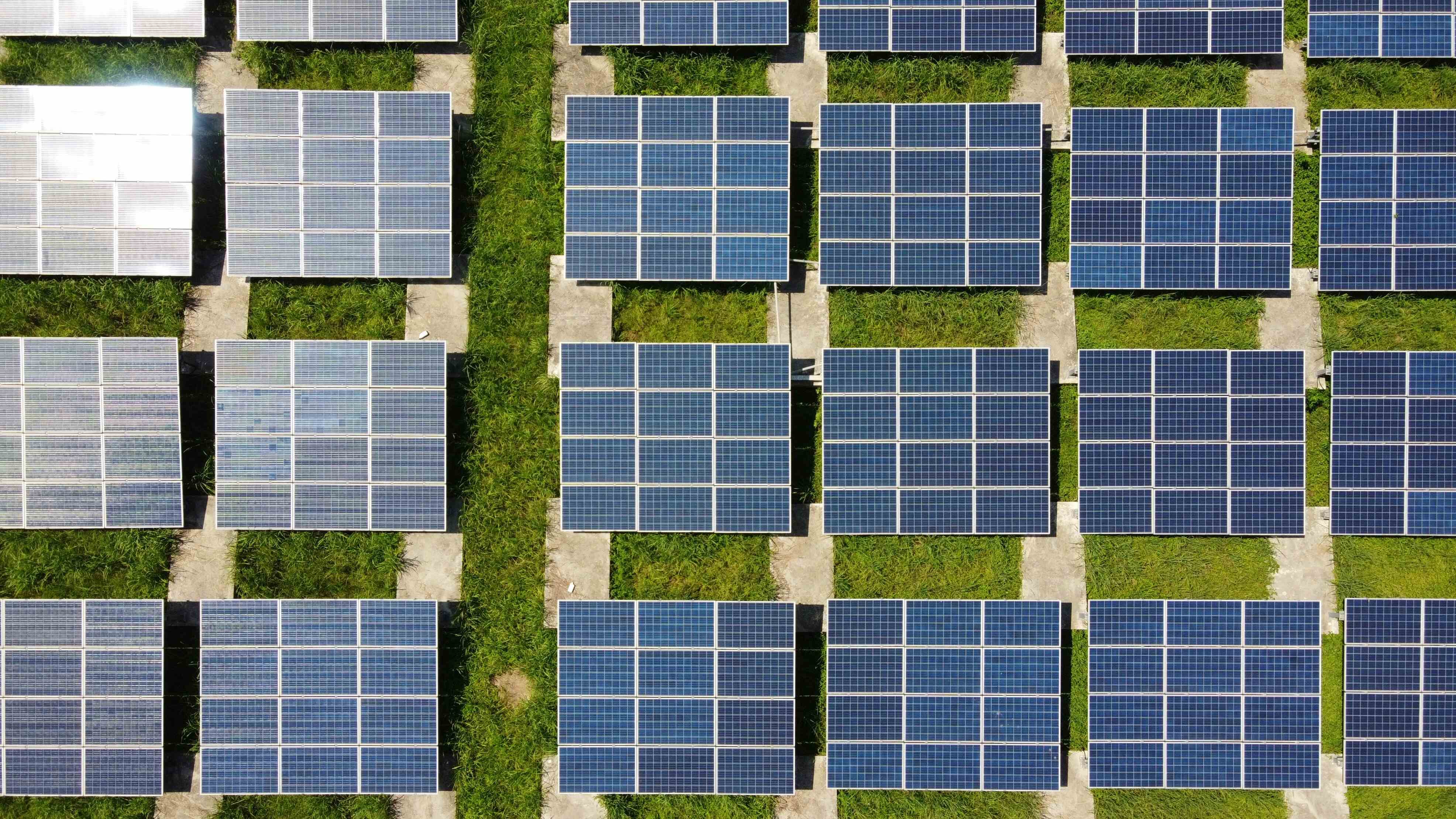How Chemical Engineers Can Become Renewable Energy Engineers
29 Jan, 202410 minsWith the renewables space experiencing a talent shortage, companies within the industry are ...

With the renewables space experiencing a talent shortage, companies within the industry are increasingly looking at ways of sourcing the people they need to support their renewable energy projects. One of the approaches many businesses are starting to take is finding candidates with transferable skills, many of which can be found in chemical engineering jobs. As the world continues to progress towards a sustainable future, the role of chemical engineers has become increasingly pivotal.
Within this guide, we’ll explore the ways in which chemical engineers can and are supporting innovations in renewable energy and how you can transition from chemical engineering jobs into renewable energy engineering jobs.
In this guide, we’ll explore:
- How chemical engineers support renewable energy innovations
- What does a renewable energy engineer do?
- How to become a renewable energy engineer
How Chemical Engineers Support Renewable Energy Innovations
Seasoned chemical engineers and those looking to kickstart their careers by applying for chemical engineering jobs can contribute to the transition to renewable energy. Leveraging their interdisciplinary expertise through a combination of chemistry, physics, and engineering principles, they can contribute significantly to various innovations in clean energy production, conversion, and storage.
Chemical engineers' knowledge covers the full spectrum of the renewables industry, including battery energy storage, bioenergy, carbon capture, hydropower, solar energy, and wind energy. This section delves into the different renewable energy specialisms talent within chemical engineering can support.
Battery Energy Storage
Chemical engineers have made pivotal contributions to high-performance battery technology, addressing the intermittent nature of renewable sources. Applying their expertise in electrochemistry and materials science, professionals within this space can optimise the performance, lifespan, and safety of batteries used in renewable energy applications. These advancements are fundamental in establishing reliable energy storage systems, contributing to a more stable energy grid.
As renewable energy sources come intermittently, effective energy storage technologies are imperative to capturing the energy when it's generated - ensuring no power is wasted. Chemical engineers have made significant strides in this domain, contributing to the performance of lithium-ion batteries, supercapacitors and fuel cells, to name a few.
Carbon Capture and Storage
Tackling greenhouse gas emissions is paramount for sustainable and renewable energy solutions. Chemical engineers actively contribute to the development of carbon capture and storage (CCS) technologies, which store harmful emissions produced through industrial processes to prevent them from negatively impacting the planet.
According to the International Energy Agency (IEA), if carbon emissions fall to zero by 2070, carbon capture and storage technologies will account for around 15% of this reduction. By applying their knowledge of separation processes and fluid dynamics, chemical engineers can help design efficient CCS systems, playing a crucial role in reducing the impact of emissions on the planet and reaching global net-zero targets.
Solar energy
Regarding solar energy, chemical engineers can be instrumental in refining the efficiency of photovoltaic cells - arguably the backbone of renewable power. Through relentless research and innovation, they can devise advanced materials and coatings to enhance sunlight absorption and improve solar energy conversion into electricity.
These breakthroughs can boost efficiencies and make solar panels more affordable and available, fostering wider adoption by businesses and individual households.
Bioenergy
Bioenergy from renewable sources like biomass, biofuels, and biogas can also benefit from the input of chemical engineers. An essential aspect of bioenergy innovation involves the process of anaerobic digestion, converting waste biomass into valuable renewable energy sources. Chemical engineers contribute to this process by developing processes that efficiently extract energy from organic waste while minimising the environmental impact and the release of carbon emissions.
Chemical engineers are pivotal for advancing biofuel production. For example, they can employ cutting-edge techniques that utilise enzymes and genetically modified crops, which can enhance the efficiency of biofuel extraction, making it a more viable and sustainable option for transportation purposes.
Hydropower
Chemical engineers can also help shape the future of hydropower and clean fuel production. They can be essential for designing and optimising the efficiency of hydropower generation. The contributions of chemical engineers include employing their expertise in fluid dynamics, materials science, and process optimisation to support the designs of turbines and systems within hydropower plants.
Their ultimate objective is to find a balance between electricity generation efficiency and environmental sustainability, ensuring hydropower remains a reliable and eco-friendly renewable energy source.
Wind energy
As a crucial pillar in the renewable energy resources space, chemical engineers can play a pivotal role in developing the sustainability and efficiency of wind power technologies. Their contributions extend beyond the visible blades, encompassing material properties, aerodynamics, and lubrication systems.
Chemical engineers can create surface treatments to reduce drag resistance and enhance the performance of turbine blades. Through their expertise in fluid dynamics, chemical engineers can also contribute to designing wind turbine blades with improved aerodynamics, resulting in higher energy capture.
Ultimately, chemical engineers have the potential to help advance renewable energy innovations, address challenges, and drive the transition towards a cleaner and more sustainable energy future. Talent in or looking at applying for chemical engineering jobs can contribute to these clean energy innovations and support the global fight to combat climate change and reach net-zero targets by transitioning into the role of a renewable energy engineer.

What does a renewable energy engineer do?
Chemical engineering jobs and renewable energy engineering jobs go hand in hand. Regarding renewable engineers, these individuals contribute to the production of energy derived from natural, sustainable sources. With the topic of renewables a focal point in today's discussions on global sustainability, renewable energy engineers are at the forefront of creating innovative methods to utilise alternative energy to support the world's efforts for a sustainable future.
Whether it's battery storage, biofuels, wind, hydro or solar power, a chemical engineer can seamlessly transition into a renewables role and focus on discovering efficient, clean, and innovative ways to extract energy from these resources.
The responsibilities of renewable engineering jobs vary depending on the specific source of energy they contribute to. What remains the same across all roles is that the duties are critical to the sustainable development of energy solutions. If you're working as a chemical engineer in the energy sector or an alternative field, you may find these responsibilities similar to your current role.
The typical responsibilities of a renewable energy engineer include:
- Designing and testing machinery: Renewable energy engineers are involved in creating and testing machinery that can efficiently harness energy from renewable sources.
- Enhancing existing processes: Continuous improvement is crucial for developing renewable energy technologies, and engineers work on refining and optimising existing processes and ideas to maximise energy output.
- Converting alternate forms of energy: Renewable energy engineers aim to replace non-renewable energy sources with alternative, cleaner energy sources, thereby reducing fossil fuel use, carbon emissions, and greenhouse gases.
- Research new innovative ways to generate energy: Renewable energy engineering jobs require talent to be at the forefront of cutting-edge innovations and dedicate time to research new methods of renewable energy generation that are both effective and environmentally friendly.
- Minimising environmental damages: Engineers actively seek ways to minimise the environmental impact of renewable energy production processes, ensuring sustainable practices.
- Location decision-making for energy generation: Renewable energy engineers help determine optimal locations for energy generation, such as selecting suitable sites for wind and solar farms.
- Equipment design: Renewable energy engineers are also responsible for developing equipment necessary for efficient energy extraction from renewable sources.
- Site inspections: Renewable energy engineering jobs also require talent to conduct comprehensive site inspections to facilitate the installation of renewable technologies.
- Research the cost-effectiveness of renewable energy projects: Renewable energy engineers also research to identify the most cost-effective processes and technologies for sustainable energy production.
- Legislation and environmental standards: Renewable energy engineers must stay informed and compliant with legislative and environmental standards to ensure energy systems align with regulatory requirements.
Renewable energy engineers also possess a range of technical and soft skills. Again, many of these are transferable to those required in chemical engineering jobs.
If you're looking to transition into the latest alternative and renewable energy jobs, discover the essential skills and traits needed for a successful career:
- A passion for innovating the renewable energy space
- The capacity to comprehend and analyse complex data
- Knowledge of environmental and renewable energy regulations
- A mechanical, electrical, civil, environmental or chemical engineering degree
- Commercial understanding of the financial aspects of renewable energy projects
- Ability to utilise 3D software such as AutoCAD
- Project management skills
- Strong problem-solving skills
- Knowledge of relevant legislation
- Interpersonal communication skills
As a renewable energy engineer, the overarching goal is to produce clean, efficient, and easily accessible energy. In the face of global net-zero targets and the continued shift away from non-renewable energy sources, these engineers are actively contributing to creating a future where energy production is efficient and environmentally responsible.
How to become a renewable energy engineer
With the global renewables sector experiencing a talent shortage, ever present with the US’ need to fill millions of renewable energy jobs to support its Inflation Reduction Act, the desire for professionals with transferable skills and a passion for renewables has never been higher. As chemical engineers possess many desirable traits suitable for the renewables industry, becoming a renewable energy engineer is much more seamless for those with a chemical engineering background.
Becoming a renewable energy engineer requires a strategic blend of academic achievements, practical exposure, and a commitment to staying informed about industry developments. For those with or pursuing a background in chemical engineering who are eager to support the energy transition, here are the key steps for embarking on this fulfilling career path:
- Earn your degree: For aspiring chemical engineers wanting to focus their efforts on pursuing a renewable energy career, embarking on a degree programme aligned with renewable energy engineering is an excellent first step. These qualifications could come in the form of electrical, mechanical, or chemical engineering degrees.
- Enrol in specialist courses: If you have experience working in chemical engineering jobs and have the transferable skills suited to renewable energy, you could enrol yourself on environmental engineering or specialised courses in renewable and sustainable energy to bolster your knowledge and upskill yourself so you’re ready to make the transition to renewable energy engineering jobs.
Opting for courses endorsed by professional bodies like the Renewable Energy Institute (REI) is an excellent way to harness your knowledge and skills in renewables and is highly regarded by employers. - Apply for work placements: Actively pursue work placements during your degree or throughout your time completing relevant courses. Explore internships, placement years, or engagement with organisations like Student Energy and the Energy Institute to enhance your practical experience and build professional networks within the renewable energy industry.
- Tailor your CV: Develop a comprehensive CV tailored to highlight your skills, education, and experience in chemical engineering. Include a personal statement emphasising your suitability for renewable energy engineering, outlining the transferable skills you may have acquired in your previous or current chemical engineering role.
- Get registered: If you haven’t already, consider registering with the Engineering Council for professional recognition. Options include becoming an Engineering Technician (EngTech), Incorporated Engineer (IEng), or Chartered Engineer (CEng), offering benefits like improved career prospects and international recognition.
Final thoughts on becoming a renewable energy engineer
The seamless transition from a chemical engineer to a renewable energy engineer holds immense potential in shaping a sustainable future. By leveraging their transferable skills, chemical engineers can actively contribute to innovations across various renewable energy sectors, such as battery energy storage, carbon capture, bioenergy, hydropower, solar and wind energy.
With the renewable energy sector experiencing a talent shortage, individuals with transferable skills and a passion for renewables are well-positioned to fill this gap. As we navigate the global shift towards net-zero targets and sustainable energy practices, chemical engineers have the opportunity to be catalysts for positive change and help drive the world towards a cleaner and more environmentally responsible energy future.
Looking for the latest renewable energy engineering jobs?
If you want to transition from your role or aspirations as a chemical engineer to support renewable energy innovations, we can help. As experts in renewable energy recruitment with over two decades of experience, we are well-positioned to help connect you with the world’s most prominent organisations at the forefront of the energy transition.
Register for the latest renewable energy jobs or contact us today to discover how we can support your future career aspirations.










